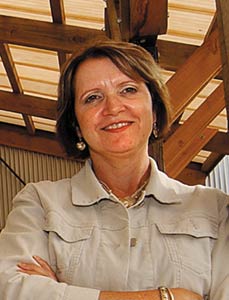Open-government laws apply to spending $75,000 in yearly
taxes
Morgan Hill – The Downtown Association has until Feb. 28 to propose an open government to manage $75,000 a year from a new tax district.
The money’s coming from a new Property Based Improvement District that downtown property owners voted for last July.
Before the money’s spent, the Morgan Hill City Council and the downtown association have to agree on how the funds will be used.
A committee is required to manage the funds and must obey California’s open meeting laws. Morgan Hill Downtown Association CEO Theresa Kiernan said the association is working with a private attorney to decide the make-up of the governing board.
“What we’re trying to do is formulate the design of this committee and its scope of work, and in doing that we’re reaching out to an attorney for some guidance,” Kiernan said, adding the association is meeting next Monday to review the attorney’s recommendations.
Kiernan said association members have agreed they’d like to see a seven-person committee with representation from the city of Morgan Hill and the downtown association. But whether members would have to be elected by paying property owners is still unclear.
Sate law allows private citizens to form PBIDs to improve their neighborhoods. A map is drawn and property owners in the PBID pay a yearly tax. The PBID area is defined by Main Street, Butterfield Boulevard, Dunne Avenue and Del Monte Avenue. Property owners are paying one to six cents per square foot per year depending on the location of their land. The PBID expires after five years.
The downtown association must propose a budget and work plan by Feb. 28.
An elected board must be picked to make decisions on funding projects.
City officials say the downtown association’s plan must meet the city’s approval.
“The city has to be satisfied that whatever entity is formed has the right people and processes to manage the funds,” said Morgan Hill City Attorney Janet Kern, adding the city would keep any money collected for the PBID in a special fund until a PBID board is established.
PBID law does not specify who is eligible to serve on governing boards, but typically the money is managed by a nonprofit corporation that has an elected board consisting mostly of paying property owners. Additionally, the elected board must hold open meetings under the provisions of the Brown Act.
“The nonprofit corporation is required to do an annual report to the council on how much money was raised and what their budget is,” said John Lambeth, president of Downtown Resources, a Sacramento-based consulting firm specializing in creating Business Improvement Districts. “Under nonprofit corporation law, the treasurer would be responsible for doing the report.”
Lambeth authored California’s PBID law that took effect in 1994 and has helped 65 cities form neighborhood improvement districts.
Tony Burchyns covers Morgan Hill for The Times. Reach him at (408) 779-4106 ext. 201 or tb*******@*************es.com.








